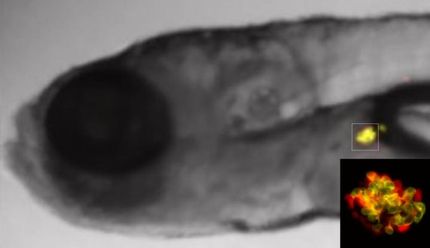Early childhood respiratory infections may be potential risk factor for type 1 diabetes mellitus
Respiratory infections in early childhood may be a potential risk factor for developing type 1 diabetes mellitus (T1D)- The incidence of T1D is increasing worldwide, although its etiology is not well understood. Infections have been discussed as an important environmental determinant, according to the study background.
Andreas Beyerlein, Ph.D., from the Institute of Diabetes Research, Munich, Germany, and colleagues sought to determine whether early, short-term or cumulative exposures to episodes of infection and fever during the first three years of life were associated with the initiation of persistent islet autoimmunity (development of antibodies against the islet cells of the pancreas) in children at increased risk for T1D.
“Our study identified respiratory infections in early childhood, especially in the first year of life, as a risk factor for the development of T1D. We also found some evidence for short-term effects of infectious events on development of autoimmunity, while cumulative exposure alone seemed not to be causative,” the authors note.
The study included 148 children at high risk for T1D with 1,245 documented infectious events during 90,750 person-days during their first three years of life.
According to the results, an increased hazard ratio (HR) of islet autoantibody seroconversion was associated with respiratory infections during the first six months of life (HR=2.27) and ages 6 to almost 12 months (HR=1.32). During the second year of life, no meaningful associations were detected for any infectious category. A higher number of respiratory infections in the six months prior to islet autoantibody seroconversion was also associated with an increased HR (1.42).
“Potential prevention strategies against T1D derived from studies like this might address early vaccination against specific infectious agents. Unfortunately, we were not able to identify a single infectious agent that might be instrumental in the development of T1D. Our results point to a potential role of infections in the upper respiratory tract and specifically of acute rhinopharyngitis (inflammation of the mucous membranes),” the authors conclude.
Original publication
Beyerlein, A. et al.: Respiratory Infections in Early Life and the Development of Islet Autoimmunity in Children at Increased Type 1 Diabetes Risk, JAMA Pediatrics, 2013
Other news from the department science
Most read news
More news from our other portals
See the theme worlds for related content
Topic world Antibodies
Antibodies are specialized molecules of our immune system that can specifically recognize and neutralize pathogens or foreign substances. Antibody research in biotech and pharma has recognized this natural defense potential and is working intensively to make it therapeutically useful. From monoclonal antibodies used against cancer or autoimmune diseases to antibody-drug conjugates that specifically transport drugs to disease cells - the possibilities are enormous

Topic world Antibodies
Antibodies are specialized molecules of our immune system that can specifically recognize and neutralize pathogens or foreign substances. Antibody research in biotech and pharma has recognized this natural defense potential and is working intensively to make it therapeutically useful. From monoclonal antibodies used against cancer or autoimmune diseases to antibody-drug conjugates that specifically transport drugs to disease cells - the possibilities are enormous


















































